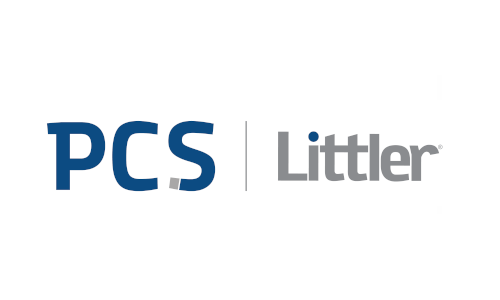- Executive Note
- Editorial note
- Interviews
- Finance and Financial Services
- Events Coverage
Trade union activity and employer costs
PCS Paruch Chruściel Schiffter | Littler Global | Jun 24, 2023, 12:29

By Michał Bodziony – lawyer, Kinga Ciosk – lawyer, and Kamil Bogusz – paralegal, PCS Paruch Chruściel Schiffter Stępień Kanclerz | Littler

Trade unions exercising their statutory rights may generate considerable costs for employers. Moreover, employers are often faced with union demands that go further than the law provides. For example, the use of company premises and facilities, financing union trips, training and conferences or the use of company email addresses. Yielding to such demands creates unwarranted costs for the employer, and more importantly, may not comply with the law.
The standards for effective compliance management require periodic workplace audits to identify any unjustified costs incurred by the employer for trade union work and to lawfully reduce such expenses.
Premises, facilities and equipment for trade union activity
When trade union representatives request their employers to provide them with premises, facilities and equipment to carry out their work, it often turns out that their demands go far beyond what they are actually entitled to by law.
In terms of unions using an employer’s premises, we have come across many unreasonable demands. The requests included, for example, unions asking for a designated space:
- In each of the employer’s branches or facilities – employers are not required to do so, as it generates high costs and is often objectively not feasible
- Set aside exclusively to a particular trade union – which is also not an employer’s statutory duty; it is enough to provide a trade union with, for example, one dedicated room or a conference room (e.g. available to a trade union at a specified time)
- Available free of charge – which, given the prohibition on financing trade union work, is a highly questionable practice that may result in allegations of unequal treatment.
We recommend employers should also take a closer look at the equipment and materials made available to trade unions, including printers, paper, toner or even mobile data packages on SIM cards. They should not be provided completely free of charge.
Financing union trips and conferences
In our experience, union representatives often demand full funding or a subsidy from the employer to cover travel, accommodation, food and other costs incurred for union trips, training and conferences. We would like to highlight that employers are not only not obliged to bear such costs but, in fact, should not do so. Funding the above may be considered illegally concealing funding of union activities.
Use of company e-mails or intranet
Trade union representatives often request employers to set up dedicated email addresses or intranet tags which they intend to use as communication channels with employees.
As a general rule, there are no reasons for the employer to grant such requests. Firstly, they are not justified by law. Secondly, providing access to a company e-mail address or the intranet may breach personal data-protection regulations and the negative freedom of association, which is the right not to belong to a trade union (not all employees want to find themselves on the receiving end of trade union communications). Regardless, given there is no legal basis, such actions may constitute unlawful, concealed financing of trade union activities.
Release from work with pay
According to the law, members of a trade union executive board may request their employer to release them from the duty to provide work for their term of office (with pay). Bearing in mind that such requests are quite frequent and the resulting costs are considerably high, employers should take a closer look at this issue.
Employers should be aware that the number of unionists eligible for release from work depends on the size of that trade union. For example, a trade union with between 501 and 1,000 members (employed by the employer) will yield two board members eligible for full-time release. When the number of union members exceeds 1,000, then three union board members will have the right to full-time release from work.
With the above in mind, if an employer has any doubts about the actual number of trade union members, it may be worth taking steps to review the information provided by the union. When an employer challenges the number of union members, the union must request a court to determine the number of its members on a specific date. We already know from practice that the court usually finds the number of union members to be much lower than declared, which results in substantial savings for employers.
Release from work for ‘ad hoc tasks’
Trade union-related cost optimisation should also include examining release from work granted for ad hoc union tasks. This type of release should only be used by unionists for emergencies that require immediate action, such as participation of an employees’ workplace inspector in an accident investigation, not for activities that are objectively possible to plan in advance, such as participation in an election or a union trip.
We believe that employers have the right to check whether a request for release from work for ad hoc tasks is correct and to refuse it when the reason for release does not comply with the law (such as a planned activity, which cannot be considered ‘ad hoc’).
Given the above, there is no doubt that employers should carry out periodic audits of expenses for trade unions. In particular, it is advisable to check whether trade unions exercise their rights to the extent they are actually entitled to by law. This is necessary from the perspective of compliance and transparency of the relationship between the employer and trade unions.








